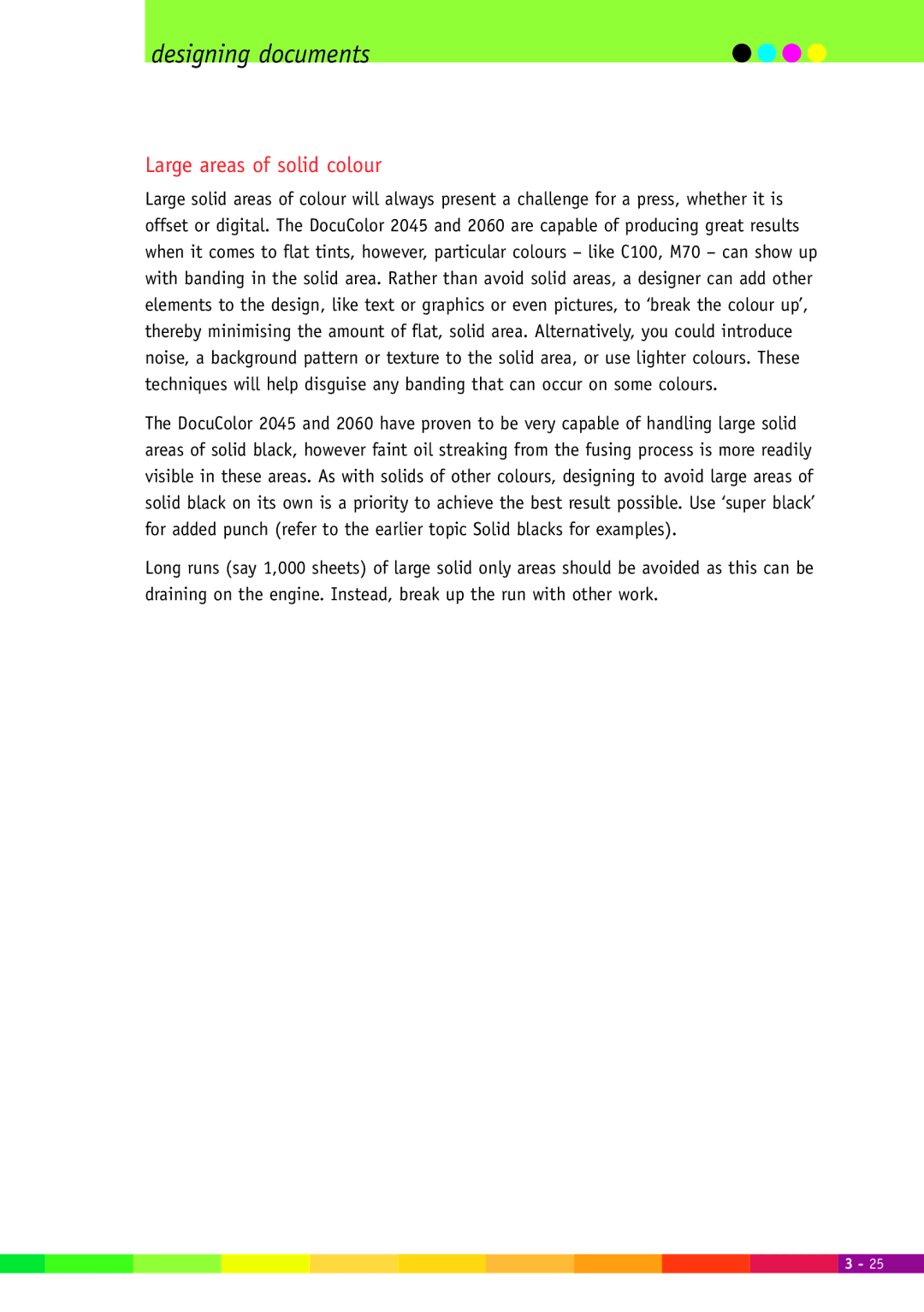
designing documents
Large areas of solid colour
Large solid areas of colour will always present a challenge for a press, whether it is offset or digital. The DocuColor 2045 and 2060 are capable of producing great results when it comes to flat tints, however, particular colours – like C100, M70 – can show up with banding in the solid area. Rather than avoid solid areas, a designer can add other elements to the design, like text or graphics or even pictures, to ‘break the colour up’, thereby minimising the amount of flat, solid area. Alternatively, you could introduce noise, a background pattern or texture to the solid area, or use lighter colours. These techniques will help disguise any banding that can occur on some colours.
The DocuColor 2045 and 2060 have proven to be very capable of handling large solid areas of solid black, however faint oil streaking from the fusing process is more readily visible in these areas. As with solids of other colours, designing to avoid large areas of solid black on its own is a priority to achieve the best result possible. Use ‘super black’ for added punch (refer to the earlier topic Solid blacks for examples).
Long runs (say 1,000 sheets) of large solid only areas should be avoided as this can be draining on the engine. Instead, break up the run with other work.
![]()
![]()
![]()
![]()
![]()
![]() 3 - 25
3 - 25
